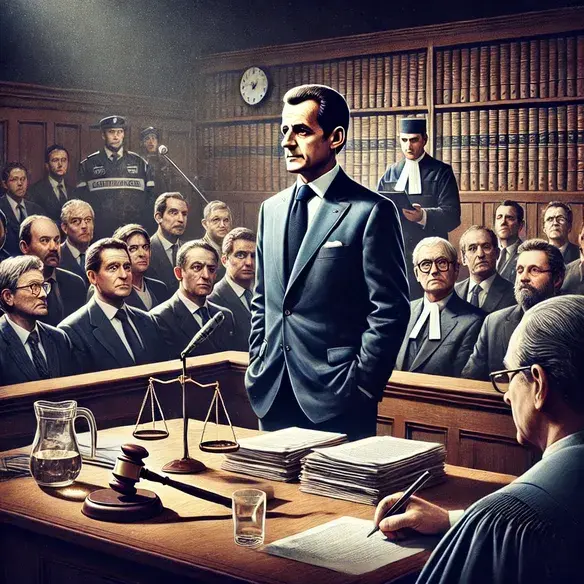Introduction
The political landscape of France is once again under intense scrutiny as former French President Nicolas Sarkozy stands trial over allegations of receiving €50 million in illegal campaign funding from the late Libyan leader Muammar Gaddafi. This long-awaited trial, which began on January 6, 2025, is expected to span three months and could have far-reaching implications for French politics, transparency, and public trust in leadership. The case has been described as one of the most significant corruption scandals in modern French history.
1:Background of the Allegations
The allegations date back to Sarkozy’s 2007 presidential campaign. It is claimed that Libya’s Gaddafi regime provided substantial financial support, breaching France’s strict campaign financing laws and violating rules against foreign funding. The claims first came to light in 2011 during the Libyan Civil War when Saif al-Islam Gaddafi, the son of Muammar Gaddafi, accused Sarkozy of accepting Libyan money. Investigative news site Medi apart later published documents purportedly showing evidence of the transactions.
Ziad Tolidine, a French-Lebanese businessman, also claimed he delivered suitcases containing millions of euros in cash from Tripoli to Sarkozy and his associates. Sarkozy, however, has consistently denied the allegations, calling them baseless and politically motivated.
The Charges Against To Former French president Sarkozy
Sarkozy faces charges of passive corruption, illegal campaign financing, and criminal association. If found guilty, the former president could face up to ten years in prison and a fine of €375,000. Alongside Sarkozy, twelve other defendants, including close allies and businessmen, are also being tried for their alleged roles in facilitating the illicit transactions.
Key Evidence and Testimonies

The prosecution’s case relies heavily on testimonies from key witnesses, financial records, and leaked documents. Central to the allegations are claims of cash deliveries made to Sarkozy’s inner circle. Additionally, investigators have traced irregular financial transactions and communications linked to Sarkozy’s campaign team.
However, Sarkozy’s defense team argues that the evidence is circumstantial and lacks concrete proof. They claim that the case is built on questionable testimonies and forged documents. Sarkozy himself has remained defiant, stating that the allegations are a “grotesque smear campaign” designed to tarnish his legacy.
Public Reaction and Political Fallout
The trial has divided public opinion in France. While some view the proceedings as a necessary step towards accountability and transparency, others see them as a politically motivated witch hunt. The case has also reignited debates about political corruption and foreign influence in democratic processes.
1:Previous Legal Troubles for Sarkozy
This is not Sarkozy’s first brush with the law. In 2021, he was convicted in two separate cases: one for corruption and influence peddling in the “Wiretapping Affair” and another for illegal campaign financing in the “Pygmalion Affair.” Both convictions are currently under appeal.
Broader Implications
The Sarkozy trial is not just about one man’s alleged wrongdoing; it reflects broader concerns about corruption, foreign influence, and the integrity of political systems. Anti-corruption activists argue that the trial underscores the need for stronger safeguards against illicit campaign financing.
Conclusion
As the trial unfolds, all eyes will remain fixed on the courtroom. The outcome will not only determine Sarkozy’s fate but also set a precedent for political accountability in France. Whether he is found guilty or acquitted, the trial will leave an indelible mark on the nation’s political landscape.
